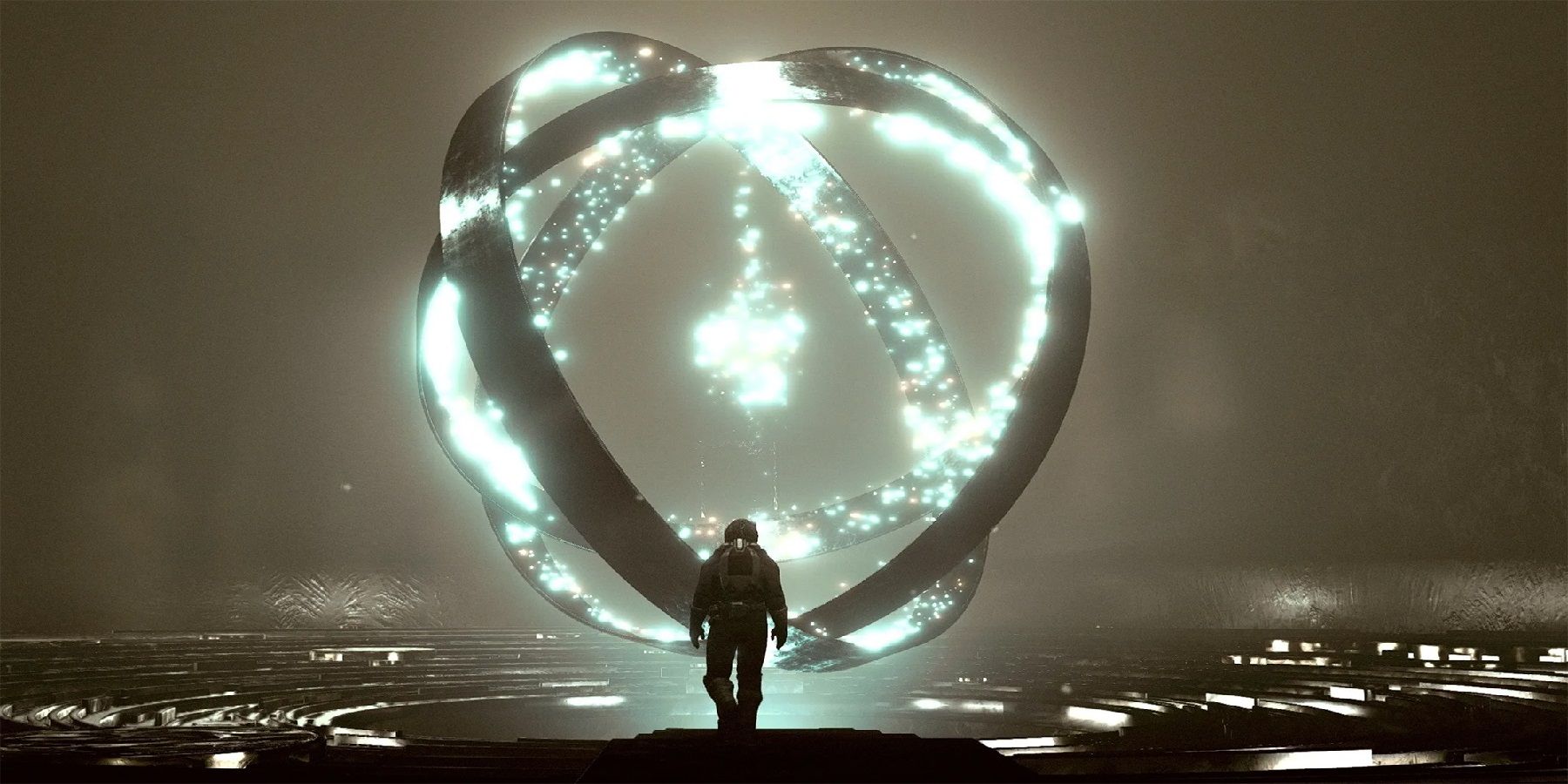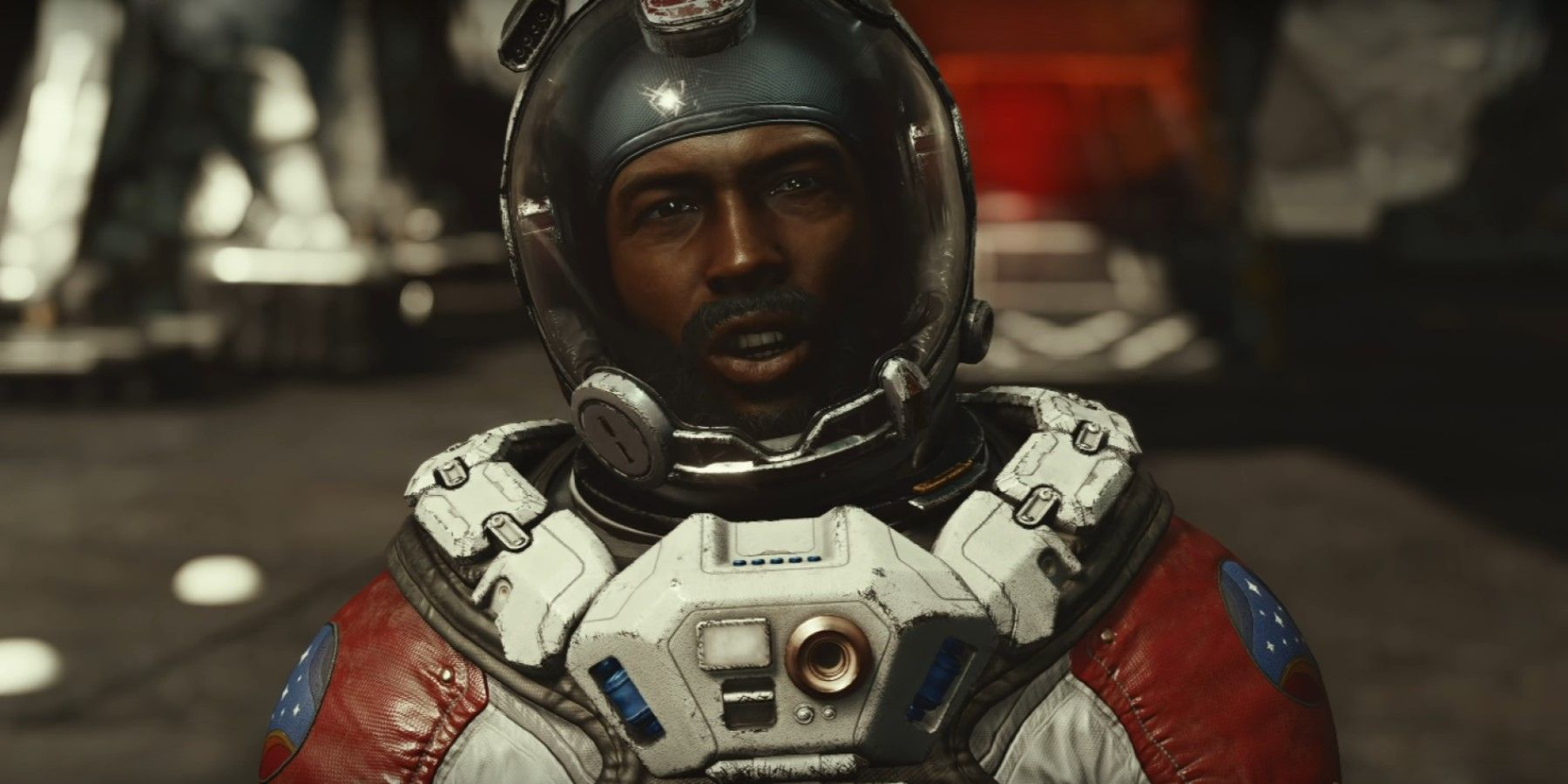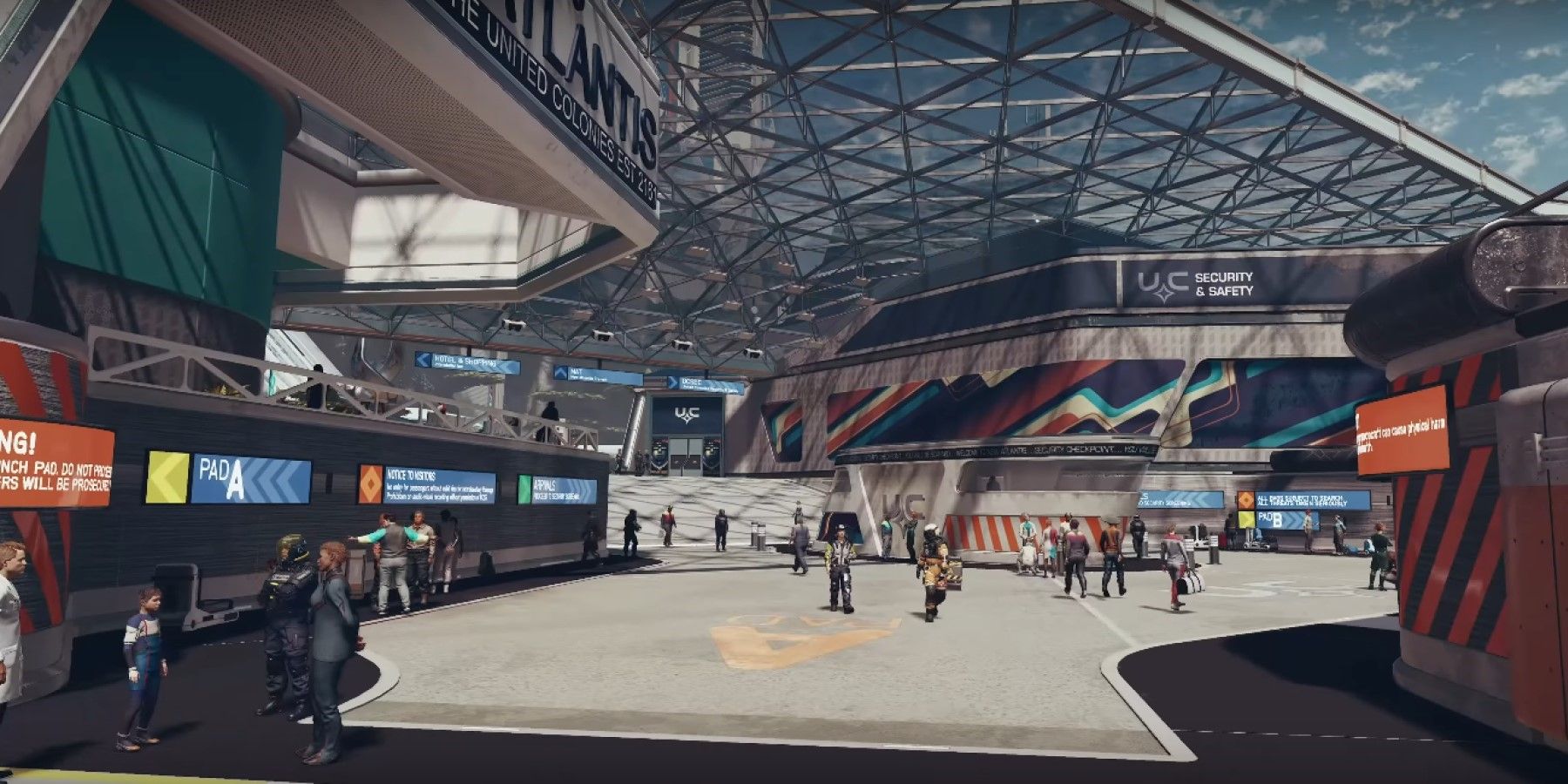Starfield, an all-new "space epic" by Bethesda Game Studios, has the chance to be a wonderful return to form for the landmark RPG developer. The highly-anticipated Xbox console exclusive has already showcased a sizable chunk of gameplay, featuring distinct factions, multiple star systems, and space flight. If all goes well with Starfield, the game's promise of providing extensive player freedom in an original setting could be a culmination of all Bethesda role-playing games over the past two decades.
In the months following the initial 15-minute gameplay demo for Starfield, several video insights have highlighted key aspirations for the team behind this project. From dialogue systems to philosophical themes, there are many elements that indicate a clear focus on merging interactivity with the core narrative. An actual release date is still uncertain, although Bethesda has confirmed that Starfield is still targeting early 2023 for release. Upon previewing a few developer roundtables, however, there are some clear signs that Bethesda aims to create a player-driven experience in the same spirit as classic role-playing games.
Character Creation in Starfield
One of the most important sequences in any role-playing game is character creation, and Starfield advertises a wealth of options for detailing player characters' appearance, starting skills, and optional traits. Starting skills are grouped into individual backgrounds, associating a set of abilities as named specializations rooted in the fiction of this new IP. Fans might have to wait until release to see whether these customizable qualities will result in substantive consequences, although Starfield Game Director Todd Howard has emphasized the importance of player agency to this project.
Bethesda has also shown that there are specific incentives and quirks when selecting traits - the team is also implementing ways for players to undo negative aspects of said traits through questing. Interesting tradeoffs, such as a starter home available only with a mortgage, have not been seen since The Elder Scrolls 2: Daggerfall, another Bethesda title that featured computer-generated landscapes and quests.
The appeal of forming an identity in an alternate, space-faring future could provide the necessary depth to make each player's adventure that much more personal. In role-playing games, rule systems serve as an abstraction for the capabilities of the player character. These systems, in turn, can empower players to progress toward their desired playstyle throughout an experience that reflects their actions in a virtual world. Starfield hosts hundreds of planets, with both handcrafted and procedural content to drive more dynamic storylines. These role-playing systems could act as a vital point of player freedom in a massive setting. The fact that Bethesda is not shying away from optional idiosyncrasies in character creation bodes well for hardcore role-playing fans. This could be an opportunity for Starfield to adopt more interesting choices than the sandboxes of Skyrim or Fallout 4.
Starfield Needs In-Depth NPC Reactivity
In the pursuit of discovering Starfield's story, it appears that new dialogue systems will promote more meaningful conversations. The sci-fi RPG has moved away from Fallout 4's voiced protagonist, meaning that players will be able to use more of their imagination. This may disappoint those that appreciate dramatic performances from the side of a game's protagonist, but it also avoids the limitations of personality presets that contradict the player's ideal character. It also allows the player to inhabit the character that they are playing, which is a key appeal to Bethesda's brand of immersion.
There is also said to be over 250,000 lines of dialogue in Starfield, and this number might reflect a greater emphasis on branching interactions. By sidestepping a voiced protagonist and assuming less about the protagonist's presence in the story, much like the original Fallout games, there is a hope that players will be able to mold their character's personality and reactions through a greater variety of dialogue choices.
Dialogue trees that enable cause and effect are a valuable feature in many role-playing games. Storylines can shift or even resolve in amusing ways when games take the player's input into account, making those scripted characters feel even more connected to the overarching journey. In terms of innovations, Starfield's persuasion mini-game has also been unveiled, turning skill check sequences into a contextual series of risk/reward exchanges. This could be a much more interactive approach for players to participate in conversations in comparison to the binary pass/fail system seen in early Fallout games. Bethesda's upcoming RPG should leverage these features in its random encounters as well, making for another convenient way to make those diversions an interesting exploration of the universe's characters.
How Starfield Approaches Faction Quests
Given its scope, Starfield's corner of the Milky Way will undoubtedly include a variety of organized groups to encounter. Some factions to look out for include: the Crimson Fleet, the United Colonies, the Freestar Collective, and even religious organizations. Time can only tell what motivations, conflicts, or interests intersect between those aforementioned parties.
According to Starfield's lead quest designer Will Shen, players can influence the direction of certain factions in terms of their interests or investments in the setting. It is also clarified that players will not be becoming the leaders of every faction. Instead, Starfield intends to make these stories more personal, grounding these new scenarios in its universe. Similar to Bethesda's The Elder Scrolls 3: Morrowind or Obsidian's Fallout: New Vegas, these faction questlines could evoke the "Stranger in a Strange Land" trope that complements these exotic settings so well. Players might find themselves able to steer the storytelling within reasonable constraints, but the game also accounts for the player-controlled protagonist discovering these features as just one of many participants in a larger scenario. These design decisions could result in Starfield exploring speculative science-fiction with nuance and maturity.
There is still a lot to discover once the game is available to the masses, including the fate of Earth in Starfield and a colony on Mars. After the infamous launch of Fallout 76, there is a keen desire for Bethesda to capture the magic of its previous titles in new-gen gaming. An entire alternate history awaits role-playing game fans in the long-awaited space exploration game, and more details should follow before release.
Starfield releases in 2023 for PC and Xbox Series X/S.


.jpg)

